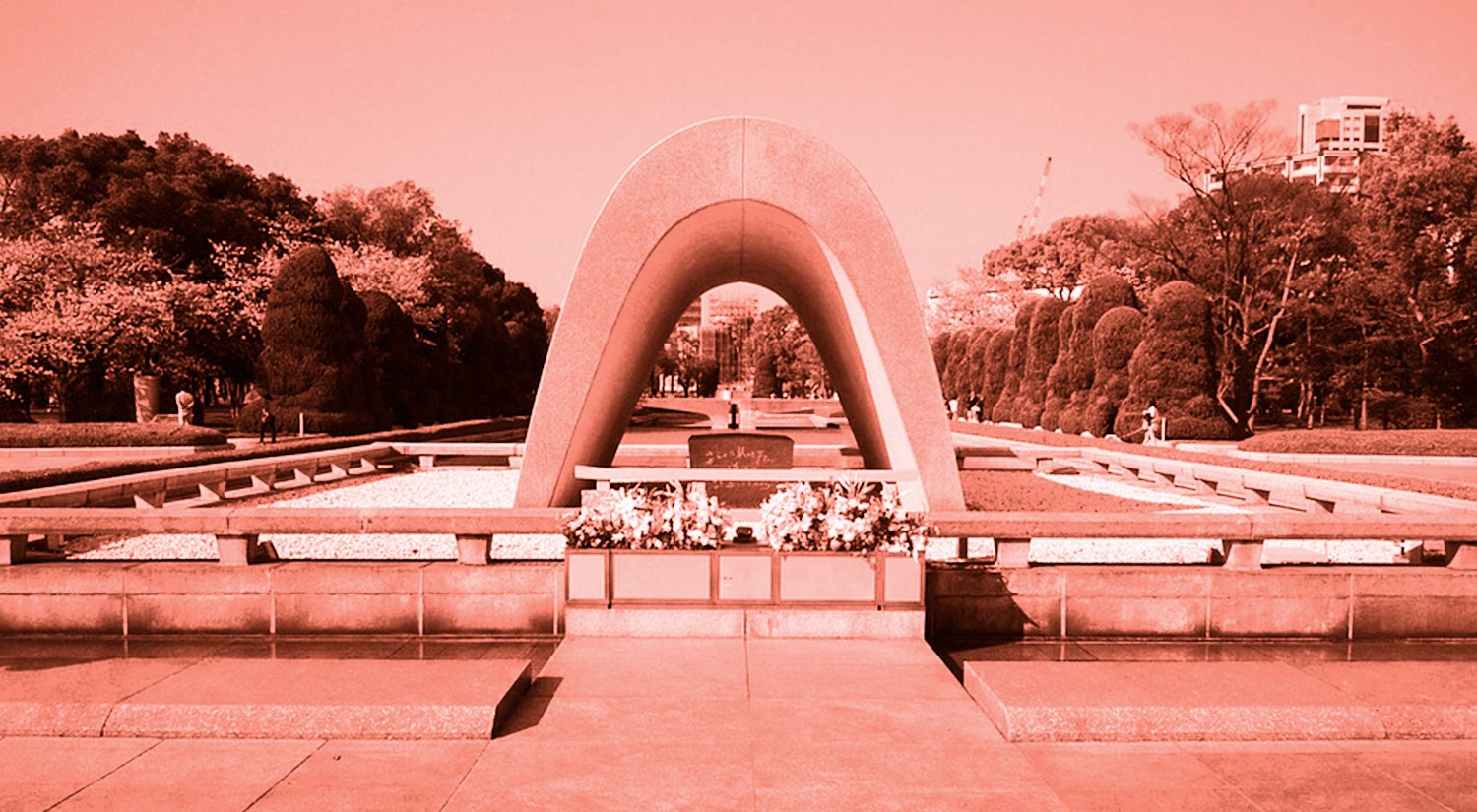The Nuclear Age And The Cyber Age: Commemorating Hiroshima And Nagasaki By Securing Peace For The Future
August 11, 2020
2020 is already, in many ways, a year without precedent, with the world seemingly in upheaval from the very start. One could be forgiven for forgetting that the year began with continued weekly school strikes and demonstrations around the world calling for action on climate change, while wildfires engulfed broad swathes of Australia. All of this seems like a distant memory since the outbreak of the coronavirus and the medical emergency that brought global activity to a grinding halt, and the subsequent economic catastrophe and civil unrest which we continue to endure across the globe. These are hardships and challenges unparalleled in the modern era.
However, it is important to remember in these times that we are not adrift, not unmoored, and that humans have faced steep challenges and tragedy before in our history. We must commemorate and recognize such past events, now more than ever, in order to understand and learn from them; to let these lessons ground us amid uncertain times when changing circumstances and evolving capabilities seem to run ahead of human comprehension and control. Indeed, 2020 includes many milestones, but perhaps none more important than this August which marks 75 years since the successive bombings of Hiroshima and Nagasaki, still the only ever use of nuclear weapons.
The instantaneous destruction of these attacks remains unparalleled. Two cities, each destroyed in a flash of explosion at the end of the deadliest war in human history, killing tens of thousands instantly, with many more to perish in the coming weeks, months, and years from injuries and exposure to radiation. These events marked the dawn of the nuclear age. Thankfully, the nuclear age has been characterized by initiatives to ensure that these weapons are never used again, with efforts like the Nonproliferation Treaty (NPT) and the International Atomic Energy Agency (IAEA) helping to limit the spread and development of such capabilities. However, nuclear weapons still persist in government arsenals and the Treaty on the Prohibition of Nuclear Weapons still remains 10 ratifications short of the 50 needed to come into effect.
Digital Peace Now stands with other non-profit organizations, like the Nobel Peace Prize winning International Campaign to Abolish Nuclear Weapons, in urging more governments to ratify the prohibition Treaty, especially on this poignant anniversary. At the same time, however, we also recognize that the agreements and institutions which have provided security in the nuclear age are rapidly becoming outdated and insufficient to protect us in the age of cyberwarfare. Nuclear weapons, and nuclear energy facilities in general, are today exposed to a new threat – online attacks conducted by governments, terrorists, and criminals alike. This new reality is underscored by recent events.
In Iran, several unexplained explosions took place this summer at sensitive locations, including the Natanz nuclear facility. This is the same facility that in 2010 sustained severe damage after a computer worm – known as Stuxnet – widely attributed to American and Israeli militaries, attacked its industrial control systems. As a result, speculations around a possible second attack in Iran by foreign intelligence agencies started almost immediately. And unfortunately, recent cyberattacks on nuclear facilities are not an exclusive to Iran. In late 2019, the Kudankulam nuclear power plant in India was hacked using malware designed for data extraction linked to the Lazarus Group, a criminal group known to have ties to North Korea. The potential implications of such an attack succeeding – or worse yet, going awry – are almost unimaginable, save for the heartbreaking damage we know nuclear weapons and nuclear energy have caused in the past. Including 75 years ago this month, in Japan.
This is why it is so important that we carry forward these lessons from the past while we look towards a safe and secure future. We are today struggling to contain and secure weapons that were last used 75 years ago, but that shouldn’t change our urgency. We still owe it to those who lost their lives so senselessly to keep trying. We owe it to them to ensure that while these weapons and facilities persist, they remain off limits to any attack – physical or digital. And we owe it to the generations to come to not give up, but to be ambitious and design new governance frameworks for the dawn of a new era – the cyber age.
The largescale cyberattacks of 2017 – NotPetya and WannaCry – have given us a glimpse into the potential global implications of a destructive online attack. But let us let these traumatic events be the high water marks of cyber conflict, and let the cyber age be similarly characterized by a concerted effort to avoid abusing our new technology to harm one another. The current pandemic has demonstrated how closely connected our economies are and how interruptions in one place can impact whole chains of production throughout the world. It has also pushed our lives and economies further online, highlighting just how much we rely on the integrity of cyberspace.
We should not – indeed, cannot – stand idly by waiting for another singularly catastrophic attack before we wake up to the dangers of cyberwarfare. We need to act now.

